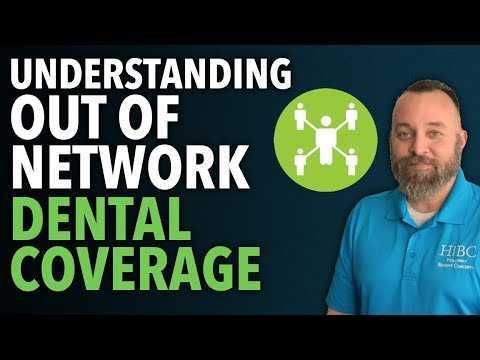
Hey there! Are you familiar with the term “out of network” when it comes to dental insurance? It can be a bit confusing, but don’t worry – I’m here to break it down for you. In this article, we’ll explore what “out of network” means for dental insurance, how it may impact your coverage, and what options you have if you find yourself in this situation. Let’s get started!
What Does Out of Network Mean for Dental Insurance?
Dental insurance is essential to ensure that you maintain good oral health, and get timely treatment for any dental issues. However, understanding the terms and conditions of dental insurance can be challenging, especially if you are not familiar with the different types of plans and providers available.
One of the commonly misunderstood terms in dental insurance is “out of network.” Here, we will explain what out of network means for dental insurance and how it can impact you.
1. What is Out of Network?
When you sign up for dental insurance, you are given a network of dentists who accept your insurance plan. These dentists are called in-network providers, and they have signed a contract with your insurance carrier to offer dental services at a negotiated rate.
Out of network, on the other hand, refers to dental providers who do not have a contract with your insurance carrier. This means that they have not agreed to the insurance company’s reimbursement rates, and they may charge higher prices for their services.
2. When Does Out of Network Apply?
Out of network typically applies when you seek dental services from a provider who is not part of your insurance carrier’s network. This can happen in different scenarios.
– You may have just moved and have not yet had the chance to switch to an in-network provider in your new location.
– You may have an existing provider who is not in-network, and you choose to continue seeing them.
– You may have found a provider who you trust and feel comfortable with, but they are out of network.
In each of these scenarios, you may have to pay more out of pocket for your dental care.
3. What are the Costs of Out of Network Services?
Out of network providers have different pricing structures than in-network dentists. They are not obligated to follow the insurance company’s fee schedule, and they can charge what they feel is appropriate for their services.
When you receive services from an out of network provider, your insurance company will still cover a portion of the cost, but you will be responsible for paying the difference between what your insurance covers and what the provider charges.
For example, if your insurance plan covers 80% of a particular service, and an out of network provider charges $200 for that same service, you may end up paying 20% of $200 ($40) plus the difference between what the in-network provider would have charged and what the out of network provider is charging (let’s say that the in-network provider would have charged $150 for that service, so you would pay an additional $50).
It’s important to note that out of network charges typically do not count towards your annual deductible or out of pocket maximum, and they may have their own separate maximums and limits.
4. How to Minimize Out of Network Costs?
If you have dental insurance and want to minimize your out of pocket costs, you should try to choose an in-network provider whenever possible. In-network providers have agreed to provide services at discounted rates, which can help you save money.
If you do need to see an out of network provider, you may want to ask them for an estimate of the costs involved and check what your insurance will cover. This way, you can prepare yourself financially and avoid any surprises.
You can also consider switching to an in-network provider if you have just moved or want to keep your dental costs down. Most dental plans will have a list of in-network providers available online or by phone, and you can choose one based on their proximity to your home or office, their specialties, and their availability.
In some cases, you may be able to negotiate with the out of network provider to lower their fees, or you may be able to work out a payment plan with them. However, this will depend on the provider’s policies and your specific situation.
5. Conclusion
Out of network dental services can be costly, but they may be necessary in some situations, such as when you have an established relationship with a trusted provider or when you need specialized care that is not available within your insurance carrier’s network.
To avoid any surprises in terms of dental costs, it’s best to choose an in-network provider whenever possible, and to always check what your insurance covers before getting any services. If you do need to see an out of network provider, try to negotiate their fees or work out a payment plan. After all, staying on top of your oral health is essential, and you shouldn’t let finances get in the way of that goal.